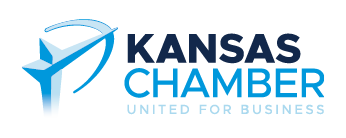1.5.19 – The Topeka Capital-Journal
Kansas’ most influential business lobbying organization plans to descend on the Capitol with an agenda for the 2019 Legislature and Gov.-elect Laura Kelly that features unorthodox and familiar policy ideas.
The Kansas Chamber, in preparation for the Jan. 14 start of the legislative session, crafted an advocacy agenda that includes establishment of a first-ever commission to package recommendations for closing or streamlining state government. The process would be modeled after a federal military Base Realignment and Closure process that took some of the political sting out of change.
“The way we deliver government today, there is a very strong chance that it’s the same way we delivered it 30 years ago,” said Eric Stafford, the Kansas Chamber’s primary lobbyist. “Can we deliver government and serve the citizens of our state more efficiently with potentially less employees, fewer programs?”
Stafford and Alan Cobb, president and CEO of the Kansas Chamber, rolled through the organization’s agenda highlights for an episode of Capitol Insider, a podcast of The Topeka Capital-Journal and GateHouse Kansas
The Republican-infused, limited-government Kansas Chamber, as expected, promised to invest time and money to once again block expansion of Medicaid. No surprise, the Kansas Chamber seeks to retain tax breaks for expanding businesses and passage of a constitutional amendment limiting the judicial branch’s role in K-12 funding disputes.
The statewide organization also plans to encourage lawmakers to pass along to Kansans the millions of dollars in unexpected revenue rolling into the state treasury due to a federal tax bill signed by President Donald Trump. The windfall followed repeal by the 2017 Legislature of a state income tax exemption for business owners and state income rate reductions for individuals.
“We’re already a slow-growth state,” Cobb said. “The (state) tax increase that happened in 2017 is raising a lot more money than folks estimated. Gosh, I hate to use the word fair in politics, but it seems only fair. Why should you have a federal tax cut, but the revenues in Kansas increase?”
Think that is enough for a 90-day legislative session? Think again. The Kansas Chamber has more than five dozen other policy goals. This 2019 edition can be found at kansaschamber.org.
“A lot of communities in Kansas have a 10 percent sales tax,” he said. “That vendor is at a potential 10 percent cost disadvantage if they have a brick-and-mortar location in the state.”
The Kansas Chamber also wants the Legislature to form a task force to evaluate the rise of residential and commercial utility rates. The organization would like retailers to be reimbursed a percentage of the cost of collecting and forwarding sales taxes to the state.
The federal government should enact comprehensive immigration reform, the state organization said, and the state ought to avoid increasing penalties against employers who unintentionally hired illegal workers. Kansas and other states should consider implementing guest worker programs to
meet particular workforce needs, the Kansas Chamber said.
The organization also believes in preservation of a law forbidding municipal governments from raising the minimum wage above the state or federal hourly rate.
“Who’s best to set prices and wages? It’s not the 165 legislators, as much as I love them all,” Cobb said.

